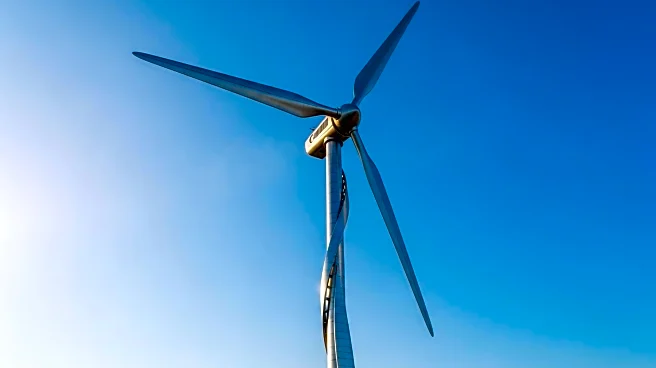What's Happening?
China has pledged to reduce its greenhouse gas emissions by 7-10% by 2035, marking its first absolute target for emission cuts. President Xi Jinping announced the commitment via video at the UN meeting in New York, emphasizing China's efforts to align with the Paris Agreement. The announcement comes as countries prepare for the COP30 summit in Brazil, where they will present their updated climate plans. Despite the pledge, critics argue that China's targets are not ambitious enough to meet global climate goals. The commitment includes expanding wind and solar power capacity and increasing forest stocks, but falls short of the reductions needed to limit global warming to 1.5°C.
Why It's Important?
China's commitment is crucial as it is the world's largest emitter of greenhouse gases. The pledge is seen as a step towards global climate action, but its modest nature raises concerns about the ability to meet international climate targets. The announcement influences other major emitters and sets the stage for discussions at the COP30 summit. The outcome of these talks will impact global climate policy and the efforts to limit temperature rise. China's actions will also affect the global transition to clean energy and the economic implications of decarbonization.
What's Next?
The COP30 summit in Brazil will be a key moment for countries to present their updated climate plans. There will be pressure on China and other major emitters to enhance their commitments to meet the Paris Agreement goals. The summit will aim to establish a global plan for climate action, with potential consequences for international cooperation and policy. China's role in the summit will be closely watched, and its actions will influence the global response to climate change.
Beyond the Headlines
China's approach to climate commitments reflects a broader strategy of setting modest targets and exceeding them, which could influence global perceptions of its climate leadership. The country's investment in clean energy and technological advancements may drive global shifts in energy production and consumption. The summit will also highlight the challenges faced by developing countries in balancing economic growth with sustainability, emphasizing the need for equitable climate solutions.









